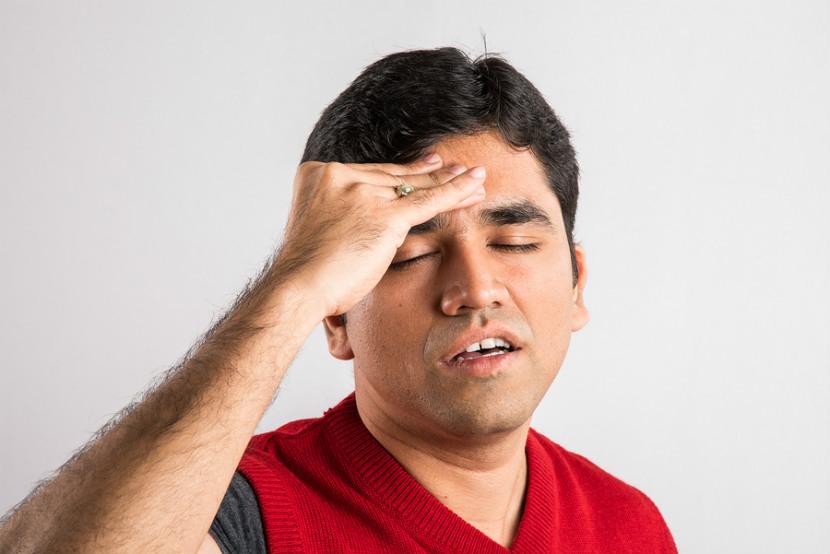
People who suffer from migraines will tell you they are not the same as average headaches. Migraines are usually quite painful and can disrupt daily life. This article will look at the difference between the two and help you understand what might trigger a migraine and how to deal with it.
What is a migraine?
A migraine is a type of headache that lasts between two and 72 hours and causes moderate to severe pain. People with migraines usually feel:
- Throbbing pain only on one side of the head.
- Pain that gets worse when they move around.
- Pain that gets better with rest in a dark, quiet space.
- Nausea.
- Sensitivity to light, sound or smells.
About 25% of people who get migraines will have what’s called an “aura” before or during an attack. An aura may cause:
- Vision loss
- Tingling
- Numbness
- Dizziness
- Difficulty speaking
- Visions of lights or bright zigzag flashes.
How is a migraine different than a regular headache?
A migraine is more than a simple headache. It has symptoms that are not found with common headaches such as sensitivity to light and smell. Headaches do not usually disrupt daily life. However, migraines can be very painful and make you miss work and other activities.
Can anyone get migraines?
Anyone can get migraines, including children. Migraines are three times more common in women than men. It is thought that migraines might have something to do with hormones because migraines sometimes disappear during pregnancy and get worse during menopause
What triggers a migraine?
The exact cause of migraines is not known – and the reasons may be different for each person. In some cases, certain foods, drinks or food additives may cause migraines. If you think those might be triggers, it might help to keep a diary where you record the foods you eat and drink when you get a migraine. You may be able to figure out whether certain foods or drinks are the problem and then you can remove that food from your diet.
Removing foods that trigger migraines should be safe as long as you don’t stop eating entire food categories like whole grains. If you need to remove many foods, work with a dietitian on an eating plan to ensure all of your nutrient needs are being met. Connect with a dietitian by visiting the Find a Dietitian page
Some of the common foods, drinks and additives that trigger migraines are:
- Alcohol - especially red wine
- Caffeine or caffeinated beverages like coffee and tea
- Citrus – like oranges, lemons, grapefruit
- Artificial sweeteners such as aspartame and sucralose – for example, in sugarless gum and diet pop
- Meats and fish
- Fried foods
- Cold foods or beverages such as ice water
In addition to the foods listed above, migraines may be triggered by:
- Fasting or skipping meals
- Being dehydrated – not having enough fluids. Drink plenty of fluids to stay hydrated. Water, low fat milk and unsweetened herbal teas are good choices. Try this apple blueberry smoothie for a tasty and nutritious way to stay hydrated. Caffeine withdrawal – for example, if you quit drinking coffee
- Lack of sleep
- Too much sleep
- Bright or flickering light
- Loud noises
- Changes in weather
- Strong scents
- Allergic reactions
- Menstrual cycle
- Stress
- Some medications
- Smoking
Can supplements help with migraines?
Some studies have looked at whether different vitamins and herbs can reduce migraine pain once it starts, but there is no proof yet that they work. Some supplements like riboflavin and magnesium, however, may reduce the number of migraines you experience. Talk to your dietitian or healthcare provider for more information before taking high doses of supplements.
How can a dietitian help?
A dietitian can help you identify food triggers for your headaches or migraines by carefully reviewing your food diary and daily activities. They can give you personalized advice on how much fluid to drink and how to eat a balanced diet so that you feel your best. Connect with a dietitian today!
Bottom line
Migraines can be painful and disrupt your daily activities. Some people can avoid migraines by knowing their triggers, like caffeine, alcohol or dehydration. If you suffer from migraines, take note of what you eat and drink before the start of your migraine. It may help you avoid migraines in the future.
You may also be interested in:
Facts on Fluids - How to Stay Hydrated - Unlock Food
Alcohol and Nutrition - Unlock Food
Facts on Caffeine - Unlock Food
This article was written and reviewed by dietitians from Dietitians of Canada.
Last Update – November 2, 2021